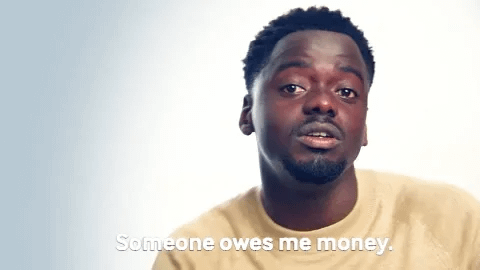“Bad with Money?” Maybe There’s More to It
Are you “just bad with money” or is there something else going on?
“I’m paying for a subscription I’m not using, but the company makes users call to cancel. Month after month, the bill comes due. I think about canceling, but it’s too difficult, so I keep paying.”
“I downloaded a budget tool, but even though it’s ‘easy,’ I refuse to look at it because the process of doing so feels so stressful.”
“My freelance client owes me money, but I haven’t followed-up on the invoice. Or maybe I didn’t send it in the first place…”
Last month I wrote a post about demand avoidance, also known as “why it’s hard for me to do simple things like getting a driver’s license.”
I got a lot of emails in response to that post, from readers sharing different stories of their own resistance to expectations. I also noticed a recurring theme in some of those messages: many of the examples that readers raised had to do with money.
As I mentioned in the earlier post, demand avoidance includes resistance to your own expectations, as well as to things that are good for you.
The example above about the freelancer who hasn’t invoiced their clients is one I hear often. In fact, I once knew a freelancer who hadn’t invoiced their main client for two years. I’m not kidding—two years! Their main client!
Now, you might think, well, that’s very dumb of them. But please keep in mind, that’s what they were telling themselves every day. (“This is dumb of me; why can’t I just do this simple thing?”)
So for most people with some version of this problem, the limiting factor isn’t lack of knowledge. It’s more likely:
a) self-limiting behavior in the form of demand avoidance, and/or
b) difficulty with the executive functions of task initiation or follow-through
The Mo’ Money Day, Updated for Mental Health
In one of my business books, I wrote about an exercise I called the Mo’ Money day. The gist is that you take half a day to sort out financial tasks, with a preference for taking action on ideas that will help you make money. You do things like:
Write down every income-generating idea that comes to mind (e.g., freelancing, online courses, e-commerce)
Register for an account on a reselling platform (Poshmark, eBay, Depop, etc.) and list at least one item for sale
Create a profile on a service platform like Upwork or Fiverr and list one service you can provide for a fee
Sign up for an affiliate program and add your link to a social profile or mailing you send
I still think this can be a very helpful exercise! And sometimes the small actions can really add up. I remember one time early in my writing career when I went through some old blog posts to add Amazon affiliate links to my books. The next month I made several hundred dollars from those links, which was cool—but the much greater benefit was that I’d continue to earn commissions for a long time to come.
Still, over time I’ve come to realize that this exercise is more helpful for some people than it is for others. Simply put, some people just get stuck when it comes to basic money tasks.
As with other challenges like time blindness, adult ADHD, and dyscalculia, merely understanding WHY you struggle (or why you gravitate towards certain kinds of behavior) can be deeply empowering. You may or may not then go on to make changes, but the understanding has value on its own.
We need a new Mo’ Money checklist, one updated for people who think they are “bad with money” but might actually be struggling with something else.
Rest assured that I’m on the case. Expect an update in a few weeks, if not sooner—and for now, feel free to let me know if you have questions or suggestions on what should be included.
Have you ever thought of yourself as being “bad with money”? What’s been difficult, and what have you learned along the way?




Very much looking forward to the second part of this. I definitely identify with the "bad with money" stigma and how paralyzing it has been throughout my life. Completely resonate with high resistance to things that are good for me. Thanks for putting this all in a very concise manner.
I've tried the Mo Money Day exercise...but get stuck at step one. I can never think of anything that I can provide that is income-generating, although I know that is most likely my own limiting beliefs.
I totally have this issue and it is deeper rooted than even just merely having emotional issues to it.
My mother sold "my services" off to my grandfather when I was 13. Some very horrible things happened to me during that week that I won't share with anyone, but one of the outcomes of this was to make sure I was never worth anything again - that I provided zero value to the point I couldn't be sold again. Money was wrong and evil and if I ended up homeless, I would be far better off than having to endure that again to make money.
That, of course, is survival brain and I get that. It doesn't serve me and I have to keep working against that because of the primal fear involved (that betrayal of trust and the lack of faith my own abilities). Much like what you are proposing in exposure therapy steps (open an account, sell one thing, so on and so on), it is vital to take small steps to open up to something new.
Because there are so many roots that dig deep into us all about money that has nothing to do with money.